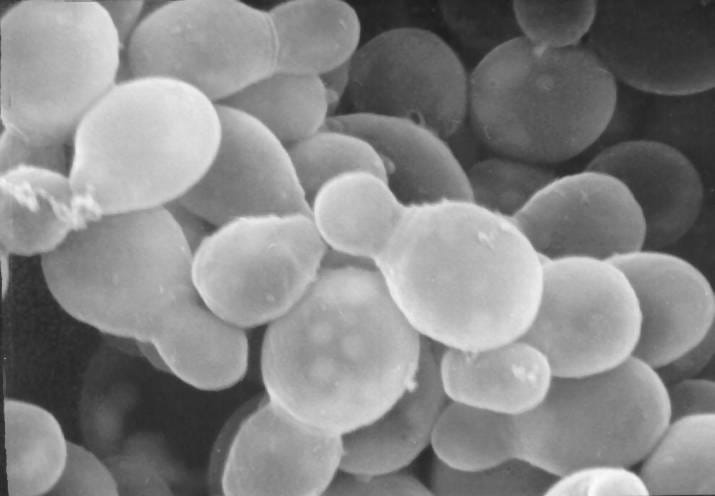Natural oils for eczema and dry skin
Natural isn't always safe. I highlight a plant oil to avoid for dry, scaly skin.
Maintaining a healthy skin barrier is important to skin health. In normal skin, we can achieve this through a few simple steps, such as staying hydrated from within and using topical moisturizers and skin protectants. But for those who live with eczema, barrier protection can be more complicated, and the type of moisturizer used can make a big difference. In fact, one commonly used natural oil can exacerbate skin breakdown rather than protect. This is due to interactions between the oil and your skin microbiome.
In this issue of the Nature’s Pharmacy newsletter, I break down which plant-derived oils may be helpful and which one should definitely be avoided.
What is eczema?
Eczema is the term used to describe a group of inflammatory skin conditions characterized by the symptoms of itch, dry skin, rashes, and scaly patches, and can also include development of blisters and skin infections. According to the National Eczema Association, “there are seven different types of eczema: atopic dermatitis, contact dermatitis, dyshidrotic eczema, nummular eczema, seborrheic dermatitis and stasis dermatitis".”
What is the role of the microbiome in eczema?
Our skin is coated in microbes. The composition and quantity of microbes influences our skin health. When it comes to atopic dermatitis, the microbiome can be dominated by staphylococci bacteria at flare sites. Malassezia species (a type of yeast) can also colonize the flare site following staph bacteria. Moreover, these yeast play an important role in seborrheic dermatitis (commonly known as dandruff on the scalp).

In both atopic dermatitis and seborrheic dermatitis you may see a shift in the skin microbiome to less species diversity (overgrowth of problematic microbes) and an increase in density of staphylococci and Malassezia.

How do plant-based oils affect the microbiome in eczema?
People with eczema tend to have very dry skin and one of the most important skincare routines is to “soak and seal.” This technique involves bathing or showering in lukewarm water using gentle cleansers, lightly pat drying, and then liberally applying a moisturizer all over the body to seal in moisture. This is the point where some DIY remedies get it very wrong—especially when the choice of moisturizer can affect the composition of the skin microbiome.
Most dermatologists recommend the use of petroleum jelly or mineral oil as they are rich in oil content and seal in moisture. If you are looking for a more natural alternative, there are two plant-based oil that have shown some promise and one you should definitely avoid.
Virgin coconut oil has been found to have antibacterial effects against Staphylococcus aureus due in large part to its lauric acid content. This may have some benefit in skincare routines for eczema. Several clinical trials have been undertaken to assess the utility of coconut oil in managing AD, with most showing positive effects.
Sunflower seed oil is rich in linoleic acid (comprising 60% of the oil) and has been subjected to many studies. In general, linoleic acid supports the barrier function of the skin. Studies combining treatment with sunflower seed oil and topical corticosteroids showed improvements in children with AD.
Olive oil is the one to AVOID for eczema and dandruff. Oleic acid, a component of olive oil, may induce inflammation in the skin. Most importantly, the yeast Malassezia thrives on this oil. Indeed, in laboratory studies that we conduct in my lab on the cause of dandruff (Malassezia furfur), we have to add olive oil to the growth media. The yeast eat it up and grow exceptionally well with olive oil added as a nutritional ingredient. As Malassezia is implicated in different types of eczema (especially AD and SD), olive oil should be avoided in the skincare routines for these conditions. Using olive oil in this case is like adding fuel to the fire and encouraging even more overgrowth of these harmful components of the skin microbiome.

The Takeaway
Not everything natural is safe. Speak with your primary care doctor or dermatologist if you or a loved one are struggling in managing eczema or dry skin. There may be some simple changes in your skincare routine that can be made to discourage the overgrowth of some of the microbes responsible for dry, itchy skin.
Yours in health, Dr. Quave
Cassandra L. Quave, Ph.D. is a scientist, author, speaker, podcast host, wife, mother, explorer, and professor at Emory University School of Medicine. She teaches college courses and leads a group of research scientists studying medicinal plants to find new life-saving drugs from nature. She hosts the Foodie Pharmacology podcast and writes the Nature’s Pharmacy newsletter to share the science behind natural medicines. To support her effort, consider a paid or founding subscription, with founding members receiving an autographed 1st edition hardcover copy of her book, The Plant Hunter.
Available in hardcover, paperback, audio, and e-book formats!








Thank you for this reminder. I’ve also heard it said that dietary olive oil should be reduced as well. Thoughts?